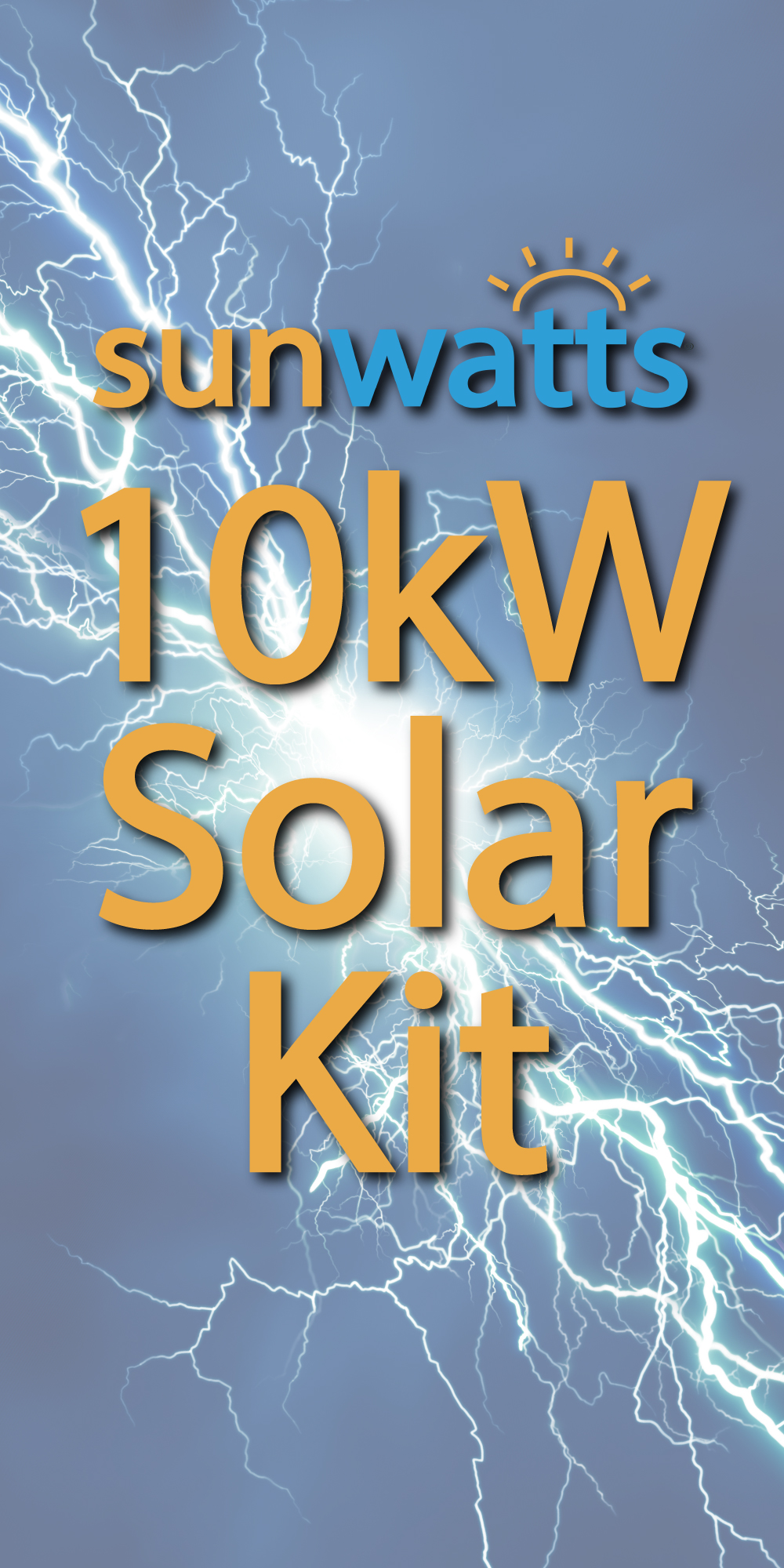Sensational Info About Is 10 KW Enough To Run A House

Is 5kW Enough To Run A House In South Africa? An Easy Guide
Powering Your Pad
1. Understanding Your Energy Needs
So, you're wondering if 10 kW is the magic number for keeping your home humming? It's a question a lot of homeowners grapple with, especially when thinking about solar panels, generators, or just generally trying to understand their energy consumption. The short answer? It depends. But let's unpack that "depends" a little, shall we? Think of it like asking if a minivan is big enough for a family. It is, if you're talking about a family of four. Throw in three dogs, a cat, and a drum set, and suddenly that minivan feels a whole lot smaller.
Energy needs are highly individual. A retired couple in a small, energy-efficient condo will have drastically different requirements than a family of five living in a sprawling Victorian house with questionable insulation. Things like the size of your home, the efficiency of your appliances, your climate, and your lifestyle all play a significant role. For example, running central air conditioning all day in Phoenix in July will guzzle way more power than using a ceiling fan in San Francisco on a mild summer day. I mean, who needs AC in San Francisco, right?
Before you even consider whether 10 kW is sufficient, it's essential to get a handle on your current energy usage. Dig out those electricity bills! They're not just good for guilt-tripping yourself; they contain vital information. Look for the average monthly kilowatt-hour (kWh) consumption. This tells you how much electricity you're actually using. Once you know your average monthly usage, you can start figuring out if 10 kW of power generation (or capacity) will cover it. Think of it as doing your energy homework before the big exam. No one wants to fail that one!
Also, don't forget to factor in future plans. Are you thinking of adding an electric car? Installing a hot tub? Converting your garage into a home theater? These additions will all increase your energy demands. Planning ahead can save you from undersizing your system and facing some serious electrical headaches down the road. Better to be prepared than sorry! It's kind of like buying a bigger suitcase than you think you need — you'll always find something to fill it with, eventually. With energy, that "something" is usually another gadget or appliance!

How To Use Portable Generator Power House At Colin Fleming Blog
The Appliance Power Play
2. Identifying Energy Hogs
Now, let's talk about the usual suspects — the energy-guzzling appliances that quietly rack up your electricity bill. Heating and cooling systems are almost always the biggest culprits. Whether you're using a furnace, air conditioner, or heat pump, these behemoths require a significant amount of power to operate, especially during peak seasons. Old appliances are also very thirsty. Time to upgrade!
Water heaters are another significant energy drain, particularly traditional tank-style heaters that constantly maintain a reservoir of hot water, whether you need it or not. Consider switching to a tankless water heater, which heats water on demand, to potentially save energy. Also, think about the humble refrigerator. While it might not seem like a big deal, it runs 24/7, keeping your food cold and silently sucking up electricity. Older models are notoriously inefficient, so upgrading to an Energy Star-certified fridge can make a noticeable difference. And don't forget about lighting! While LED bulbs have become increasingly popular, if you're still rocking incandescent bulbs, you're basically throwing money out the window.
Even seemingly small appliances can contribute to your overall energy consumption. Your computer, television, gaming consoles, and even chargers left plugged in can draw power even when they're not in use (this is sometimes referred to as "phantom load"). Unplugging these devices or using power strips can help reduce this unnecessary drain. Basically, treat your electric bill like a diet — every little bit counts! You might be surprised at how much energy you can save just by being more mindful of your appliance usage.
To figure out how much power your specific appliances are using, check their energy labels. These labels typically list the appliance's wattage, which you can use to calculate its energy consumption. There are also handy online calculators that can help you estimate the energy usage of different appliances. Armed with this information, you can prioritize energy-saving strategies and identify areas where you can cut back. Knowledge is power, especially when it comes to saving power!

How Much Electricity Does A House Use? Archute
The Climate Factor
3. How Weather Affects Your Power Needs
Where you live has a huge impact on your energy consumption. Someone living in sunny Arizona will have vastly different energy needs than someone living in chilly Minnesota. Hot climates, like Arizona, tend to rely heavily on air conditioning, which, as we've already established, is a major energy hog. Conversely, colder climates require significant energy for heating, whether it's through furnaces, heat pumps, or electric baseboard heaters. Coastal regions with moderate climates tend to have lower overall energy consumption, as they don't experience the extreme temperature swings of inland areas.
Beyond just temperature, other climate factors can also play a role. For instance, areas with high humidity often require dehumidifiers, which consume electricity. Areas with frequent cloud cover might not be ideal for solar panel systems, as they reduce the amount of sunlight available for energy generation. Think of it like this: you wouldn't wear a parka in Miami, and you wouldn't wear a swimsuit in Anchorage (unless you're incredibly brave or slightly crazy). Similarly, your energy needs should be tailored to your specific climate. Trying to force a one-size-fits-all solution is a recipe for discomfort (and a sky-high electricity bill).
Even within the same state, microclimates can influence energy consumption. For example, the energy needs of someone living in the mountains of Colorado will differ from those of someone living on the plains. Mountain areas tend to be colder and require more heating, while plains areas might experience hotter summers and require more cooling. This variability highlights the importance of considering your specific location when assessing your energy needs.
Think of your home as a living, breathing organism that responds to its environment. Just like you adjust your clothing to suit the weather, you need to adapt your energy consumption habits to match your local climate. By understanding the climate factors that influence your energy needs, you can make informed decisions about energy-saving strategies and ensure that your home is comfortable and efficient year-round.

Crunching the Numbers
4. Assessing Your Specific Situation
Okay, time for some real talk. To determine if 10 kW is enough, let's run through a quick checklist. First, calculate your average daily energy consumption in kilowatt-hours (kWh). You can get this from your electricity bills or by using an online energy calculator. Next, consider your peak energy demand. This is the maximum amount of power you use at any given time, typically during peak hours (like when you're running the air conditioner, oven, and washing machine simultaneously). 10kW is your potential limit at any time, and you need to be under that. Also, think about any potential future energy needs, such as adding an electric car or a hot tub.
If your average daily energy consumption is significantly less than what 10 kW can provide, then you're probably in good shape. However, if your peak demand exceeds 10 kW, you'll need to either reduce your energy consumption or consider a larger power capacity. Remember, 10 kW is a limit to how much you can use at any given time. If your daily average is below that, but your peak usage is over 10kW, that's a problem and may cause breakers to trip.
Let's look at a very basic example. A 10kW system is capable of running up to 10,000 watts at any given point. Let's say all of your major appliances are running at the same time; your AC is running at 3000 watts, your refrigerator at 500 watts, lights and TV at 500 watts, oven at 2000 watts, and a computer at 500 watts. If you were to try and then run a dryer that requires 4000 watts, that will immediately exceed the 10,000 watt limit, which could cause problems.
Also remember, you aren't always going to be generating 10kW, especially if you are relying on solar. If your solar system is rated to 10kW, but it's the middle of the night, it isn't generating anything, and you are relying on power from the grid. Or, if it's a cloudy day, your solar may only be generating a fraction of that. These are important things to consider when figuring out whether your system can handle your power needs.

Is A 10kW Battery Enough To Run House?Vatrer
Making the Call
5. Steps to Take for Energy Efficiency
So, you've done your homework, crunched the numbers, and now you're ready to make a decision. If you've determined that 10 kW is likely sufficient for your needs, congratulations! You're one step closer to powering your home efficiently. However, even if 10 kW seems like enough, it's always a good idea to explore ways to reduce your energy consumption further.
Consider conducting an energy audit of your home to identify areas where you can improve efficiency. This might involve sealing air leaks, adding insulation, upgrading to energy-efficient appliances, or installing smart thermostats. Remember, every little bit counts, and even small changes can add up to significant savings over time. And if you're still unsure whether 10 kW is the right fit, consider consulting with an energy professional. They can assess your specific needs and provide tailored recommendations based on your situation. Think of it as getting a second opinion from a doctor — it's always good to have another expert weigh in.
Ultimately, the decision of whether 10 kW is enough for your home depends on a variety of factors, including your energy consumption habits, climate, and future plans. By carefully evaluating these factors and taking steps to improve energy efficiency, you can make an informed decision that meets your needs and saves you money. And who doesn't love saving money?
When in doubt, err on the side of caution. It's better to have a little extra capacity than to be constantly worried about overloading your system. Plus, having some headroom allows for future growth and flexibility. After all, you never know when you might decide to add that hot tub or electric car. So, take your time, do your research, and choose the power capacity that's right for you. Your home (and your wallet) will thank you for it!

Is 16 Kw Enough To Run A House? Green Energy
FAQ
6. Common Queries and Concerns
Q: What does 10 kW actually mean?
A: 10 kW (kilowatts) is a measure of power, which is the rate at which energy is used. Think of it like the speed of your car — it tells you how quickly you're consuming fuel. A 10 kW system can deliver 10,000 watts of power at any given moment.
Q: Can I run my air conditioner on a 10 kW system?
A: It depends on the size and efficiency of your air conditioner. Smaller, energy-efficient window units may be fine, but a large central air conditioning system could consume a significant portion of your 10 kW capacity. Check the wattage of your AC unit to see how it fits into your overall power budget.
Q: Will a 10 kW solar panel system cover all my electricity bills?
A: Again, it depends! The amount of electricity a solar panel system generates depends on factors like sunlight availability, panel efficiency, and system orientation. In ideal conditions, a 10 kW system can generate a significant amount of electricity, but it might not cover all your bills, especially if you have high energy consumption.